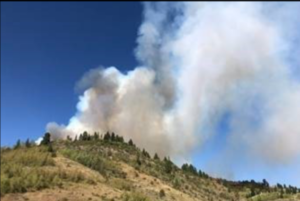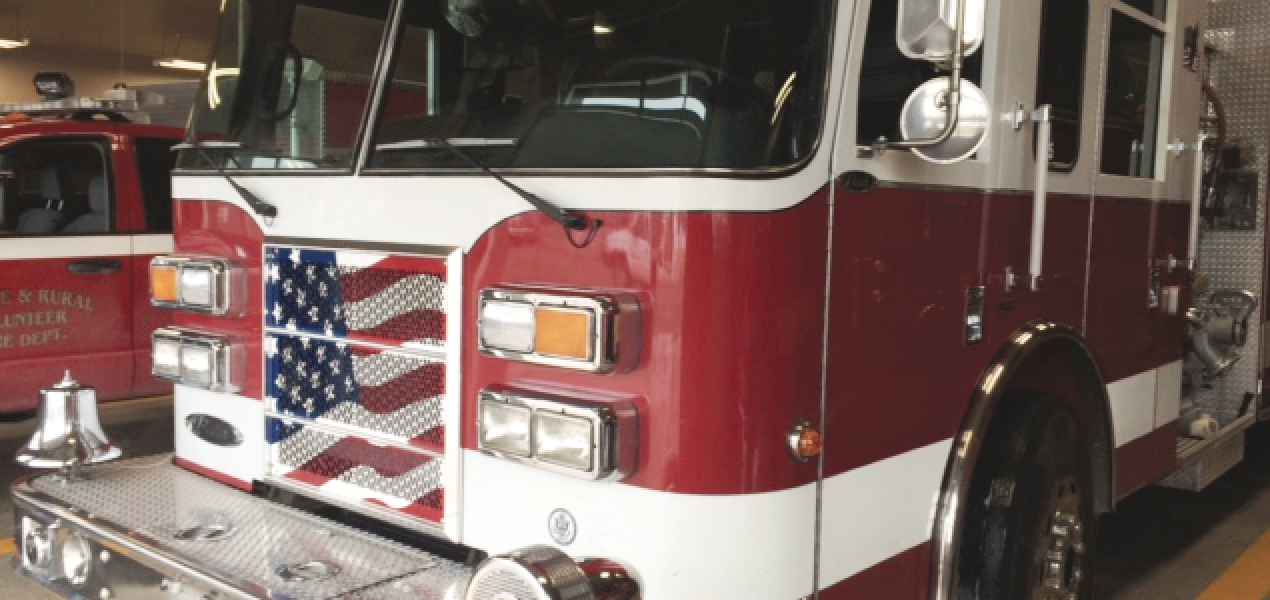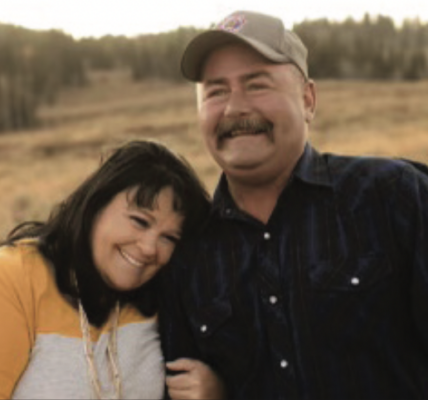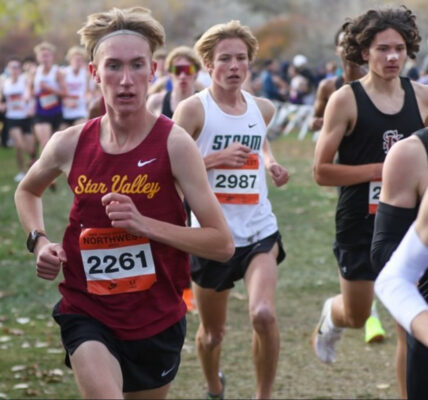◆ Fuel load size and lack of wind understanding presenting some challenges.

Burning grass and yard debris is a common occurrence around Star Valley in the Spring. This year there have been a few challenges with seasonal burning, said Alpine Fire Chief Mike Vogt.
“Spring is in the air,” he said. “People have been cooped up struggling with the Covid-19 precautions. Now it’s time to come outside and enjoy the sunshine. While maintaining social distancing, residents are beginning to clean up their properties. Raking the lawn, planting the garden, harrowing the field. As residents accumulate material they seek means in which to depose of it. Burning seems the be the most used option to get rid of the materials.”
“Open burns have increased significantly in the last months and can cause a lot of problems if not done correctly,” Vogt continued. “Open burns are a great tool but need to be done without causing other problems. Burning at the wrong time or place can easily turn into a major wildland fire.”
According to Vogt, Spring 2020 presents a number of challenges when it comes to open burning and the potential for disaster.
“This year will be special with respect to Wildland fire response,” he said. “Forest agencies had to adapt to the new precautions to keep crews safe and healthy. Response to different regions will be limited by not intermingling crews. Crews cannot afford to get quarantined or even worse catch the virus, causing manpower shortages. Mutual Aid may be limited this year. Local Fire Departments have already responded to many out of control burns this year. The biggest problem has been the size of the piles and ignoring the winds. There has also been a few complaints from people about nearby burns being a nuisance and danger to their health.”
This week the Alpine Fire Department issued a general reminder to area residents about burns.
“Wyoming DEQ has certain standards,” Vogt said. “The Alpine Fire District also has certain recommendations. Burning of any material other then natural products (grass, leaves, branches etc.) [is] not allowed. Burning of man made materials causes major health risks to the persons down wind.”
“We are asking folks to exhibit strong awareness of the possible consequences of out of control burns and the health problems of burning toxic materials,” he continued. “If it is not natural please take it to the landfill to dispose of it. Please follow the guidelines to make a safe return to normal through the pandemic.”
The Alpine Fire Department provided the following list of DEQ Guidelines for Consideration in relation to open burning.
• Allow people to make arrangements so that they can breathe more easily during the burn by contacting nearby businesses or other places where people congregate to let them know your plans.
• To minimize the impact from smoke, do not burn closer than 500 feet from another property.
• Conduct burning during daytime hours between one hour after sunrise and two hours before sunset.
•Check the wind direction and don’t begin your burn if wind would cause smoke to blow toward a neighboring residence, workplace or other place where people congregate.
• Don’t burn on very calm or cold days when there is likely to be an atmospheric inversion that will trap smoke near the ground.
• Burn in the morning when winds are minimal, so smoke will blow away with higher afternoon winds.
• Attend and observe the open burn at all times and take action (extinguish the burn or notify neighbors) if the smoke changes direction and may adversely impact neighbors.
The Alpine Fire Department provided the following open burn tips.
• Contact the Lincoln County Dispatch (307) 885-5231 to give notification of a planned burn.
• Avoid burning on windy days.
• Check the weather forecast before burning.
• Have a plan for your burn pile. The burn pile should be at least 50 feet from any structure. Limit the pile size to 6 feet in diameter and 6 feet in height. Stay 500 feet away from other property.
• Plan the time of your ignition (daylight hours).
• Keep water and firefighting tools nearby (garden hose, fire extinguisher, etc).
• Burn appropriate material. Do not burn waste that causes or creates dense smoke or odor.
• Make sure your fire is completely out.
“Practicing fire safety is in everyone’s best interest,” Vogt said.






